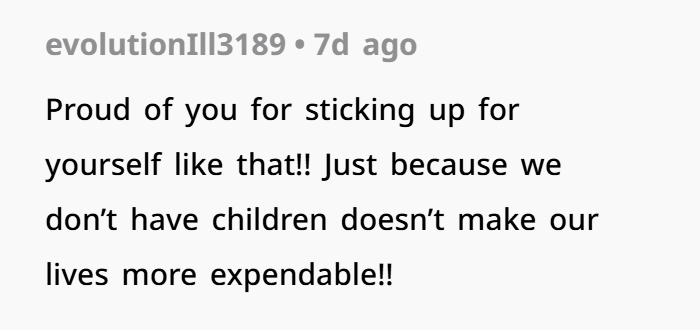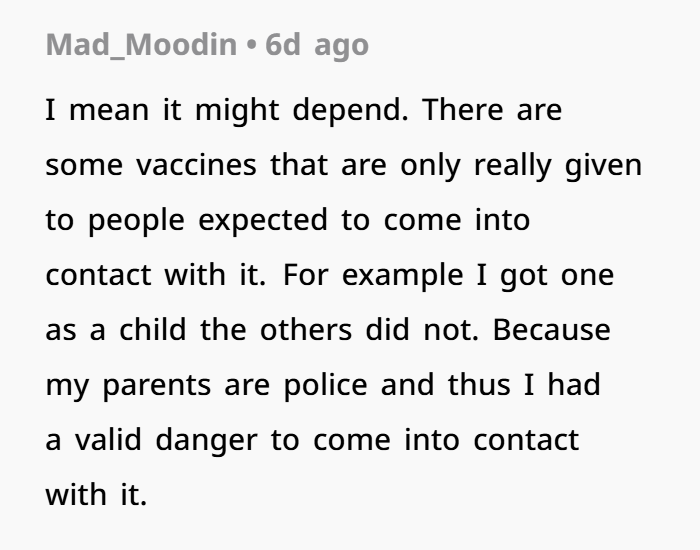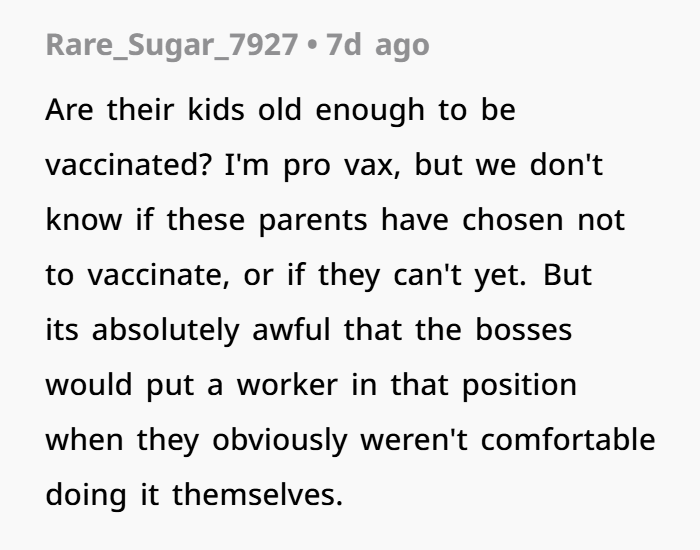Discriminated for Being Child-Free: Workplace Safety and Parental Status Bias
In a recent workplace incident, an employee was singled out for a hazardous assignment solely based on not having children. The task involved close contact with an individual suffering from a contagious disease. While the original team, all parents, declined the assignment citing concerns for their unvaccinated children, management approached a child-free employee, presuming fewer personal risks. This assumption overlooked the employee’s upcoming visit to immunocompromised family members, highlighting a troubling bias where child-free individuals are perceived as more expendable in health-risk scenarios.
The employee’s firm refusal led to an alternative solution, avoiding direct contact altogether. However, the incident underscores a deeper issue: the marginalization of child-free employees in workplace safety decisions. This case brings to light the need for equitable treatment of all employees, regardless of parental status, especially concerning health and safety risks.
The unfortunate reality is that some managers discriminate against employees without kids by giving them more work

One employee revealed how her boss tried to pressure her into doing a dangerous task because she was the only person without children

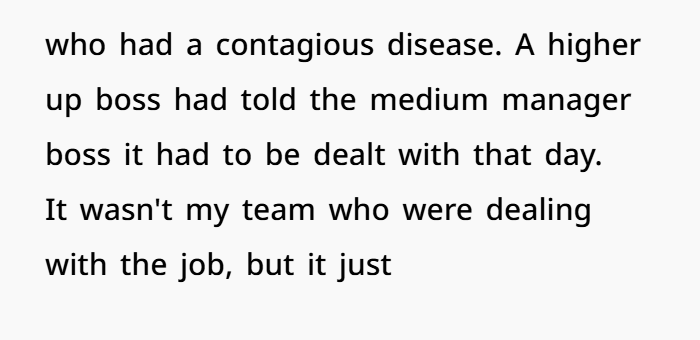
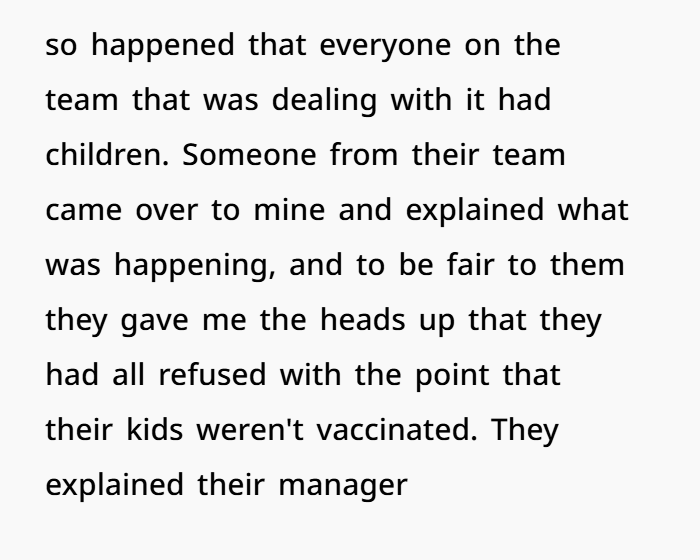

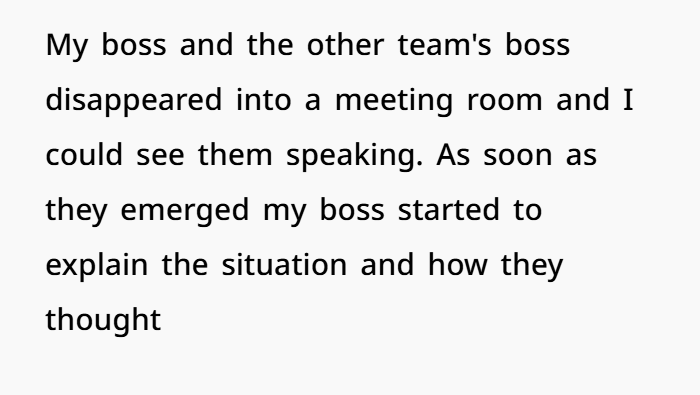
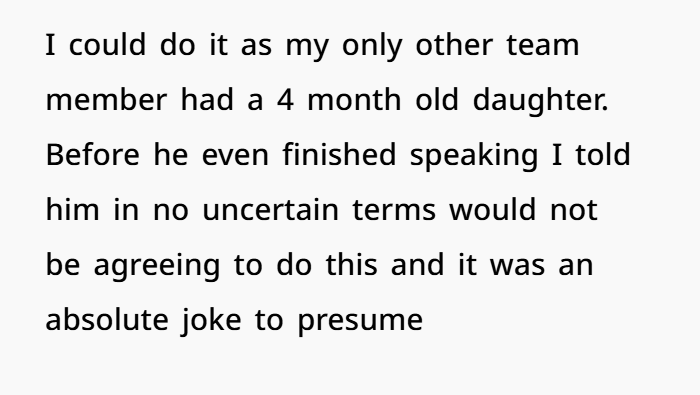
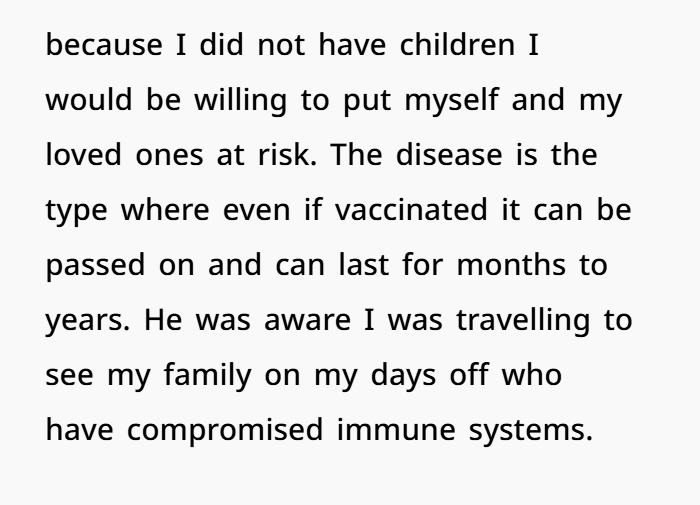
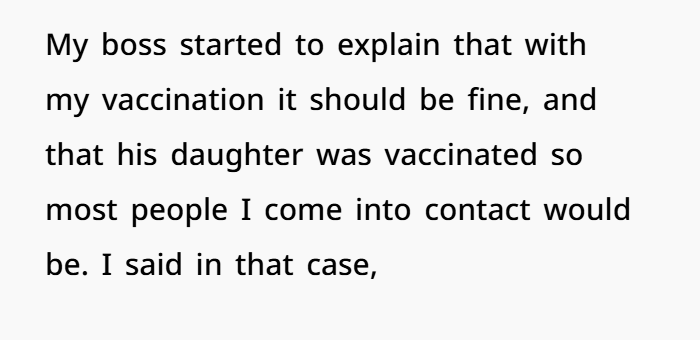
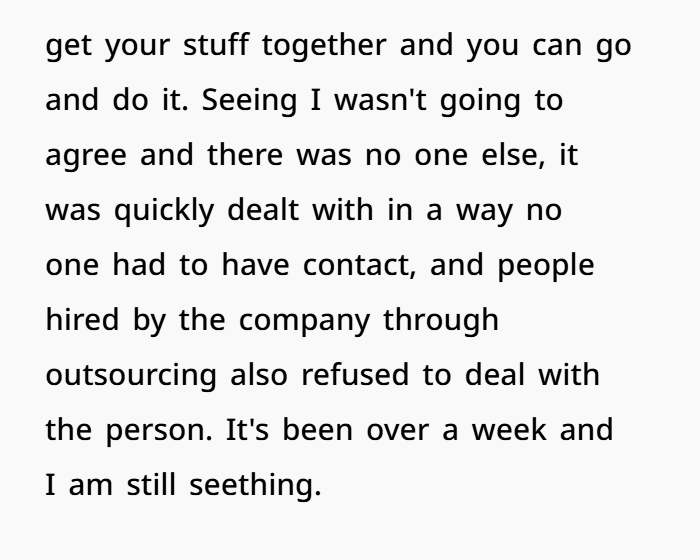
Legal and Ethical Implications of Parental Status Discrimination in Hazardous Work Assignments
1. Parental Status Discrimination in the Workplace
Discrimination based on parental status, while not explicitly covered under Title VII of the Civil Rights Act, can intersect with other protected categories, leading to potential legal challenges. The U.S. Equal Employment Opportunity Commission (EEOC) recognizes that such discrimination may constitute sex or disability discrimination, depending on the circumstances. Executive Order 13152 specifically prohibits parental status discrimination in federal employment, emphasizing the importance of equitable treatment regardless of family responsibilities .

2. Occupational Safety and Health Obligations
Employers have a legal duty to provide a safe working environment under the Occupational Safety and Health Act (OSHA). This includes protecting employees from recognized hazards, such as exposure to infectious diseases. OSHA guidelines mandate that employers implement appropriate infection control procedures and provide necessary personal protective equipment (PPE) to minimize risks . Assigning hazardous tasks based on assumptions about an employee’s personal life, rather than objective risk assessments, can violate these obligations.
3. Ethical Considerations and Workplace Equity
Ethically, assigning dangerous tasks to employees presumed to have fewer personal obligations undermines principles of fairness and respect. This practice can create a workplace culture where certain employees are deemed more expendable, leading to decreased morale and potential legal repercussions. Organizations must ensure that task assignments are based on objective criteria and that all employees are treated equitably, regardless of their parental status.
4. Case Studies Highlighting the Consequences of Bias
The case of Juarez v. AutoZone Stores, Inc. serves as a stark reminder of the consequences of workplace discrimination. In this case, a female employee was awarded $185 million in damages after being demoted and eventually terminated due to pregnancy-related biases . While this case centered on pregnancy discrimination, it underscores the broader implications of allowing personal biases to influence employment decisions.

5. Recommendations for Employers
To prevent similar incidents, employers should:
- Implement Clear Policies: Establish and enforce policies that prohibit discrimination based on parental status and ensure equitable treatment in task assignments.
- Conduct Regular Training: Provide training for management and staff on unconscious biases and the importance of equitable treatment.
- Ensure Transparent Decision-Making: Develop transparent processes for assigning tasks, especially those involving health risks, based on objective criteria.
- Promote Open Communication: Encourage employees to voice concerns about task assignments without fear of retaliation.
By addressing these areas, organizations can foster a more inclusive and equitable workplace, ensuring that all employees are protected and valued equally.
The author of the post interacted with some readers and revealed a few more details about what happened

